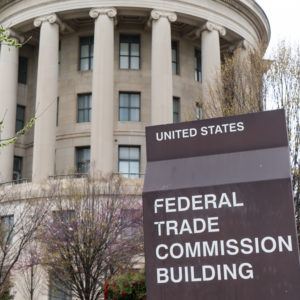In its recent lawsuit, the Federal Trade Commission (FTC) alleged that Meta—the parent company of Facebook—engaged in an illegal buy and bury scheme by acquiring would-be competitors instead of innovating to attract consumers.
Lawmakers, however, are using the lawsuit and the growing distrust in Big Tech as an impetus to consider new antitrust rules that would focus more on market size and less on consumer welfare. But switching the focus of antitrust from consumer welfare to market size will ultimately leave consumers paying the price. Additionally, the competitiveness in the social media landscape is further evidence that increased enforcement or more stringent rules are not necessary.
The lawsuit follows the FTC’s initial complaint against Meta from December 2020, which was thrown out. In his rejection, Judge James Boasberg argued, “The FTC has failed to plead enough facts to plausibly establish… that Facebook has monopoly power in the market for Personal Social Networking (PSN) Services.” Yet, Judge Boasberg allowed the FTC to file an amended complaint, as it did in August 2021.
The revised lawsuit focuses on illegal monopoly behavior with the FTC seeking to force Meta to sell Instagram and WhatsApp, companies it acquired in 2012 and 2014, respectively.
Since the acquisition of Instagram, not only have the users increased from 50 million in 2012 to over a billion, but the app has evolved with new, more advanced features. Similarly, when Facebook acquired WhatsApp, it dropped the annual subscription fee while adding more features and enhanced security.
In Congress, the Senate is currently considering the Competition and Antitrust Law Enforcement Reform Act of 2021 (CALERA), introduced by Sen. Amy Klobuchar (D-Minn.). If passed, CALERA would update the legal standard for permissible mergers by altering the threshold for illegal acquisitions and shifting the focus away from business behavior and Consumer Welfare Standard (CWS)—which has guided enforcement agencies for the past 40 decades to focus on the impact on consumers—toward market share and size.
Unfortunately, market share and size are not good proxies for competition or consumer benefits. This legislation would alter current law to unfairly target specific companies such as Meta, which are already under rigorous antitrust regulations as the current FTC lawsuit shows.
Not only has the federal government previously investigated Facebook—FTC reported receiving over 26,000 complaints regarding data privacy concerns—but it has successfully stepped in and aided in breaking up companies and curbing anti-competitive practices.
Perhaps most relevantly, the FTC investigated Microsoft for its monopoly and anticompetitive behavior in the operating system marketplace. The courts initially found Microsoft guilty and ordered a break-up. However, the decision was overturned, and while the federal government failed to show that the company attempted an illegal monopoly, Microsoft was found guilty of anticompetitive behavior.
Eventually, the case was settled by limiting exclusivity deals for Windows and allowing other developers to operate on the system.
While the verdict in the Meta case is still pending, it doesn’t appear that the targeted mergers harmed competition. The meteoric rise of TikTok shows that competition still exists in the social media space. The app gained a billion users in 5 years, growing faster than Facebook, Instagram, and YouTube, which each took between 7 and 9 years to achieve a billion users. Additionally, from 2019 to 2021, TikTok experienced the fastest growth with a 38 percent increase compared to Facebook’s 19 percent and Instagram’s 16 percent.
If Meta’s alleged anticompetitive behavior is as severe as the FTC has alleged, TikTok would not have been able to grow into the force it is today.
In the U.S., 72 percent of adults use some form of social media platform, double the reported use in 2009. Not only has usage exponentially increased, but the individual platforms continue to attract more users as well. Out of the 11 platforms that Pew Research tracked, only one of them had experienced a decline in users, and the drop was marginal. Furthermore, the average person uses 6.6 different social media platforms, showing that competition for users is not zero-sum and that consumers are seeing real benefits from these services.
The market for social media is far from closed, and competition is spurring new platforms and features that benefit increasing numbers of consumers. New legislation and regulations targeting acquisitions and mergers will not improve these benefits and would prove superfluous as existing FTC efforts show that they already have the authority to investigate potential illegal activity.
Increasing resources for the FTC is one thing, rewriting antitrust laws is another. But only the latter has the potential to cause irreparable harm to consumers.

